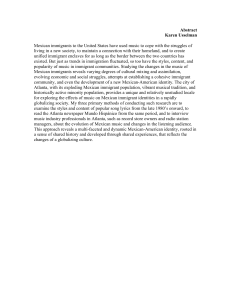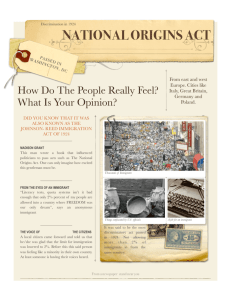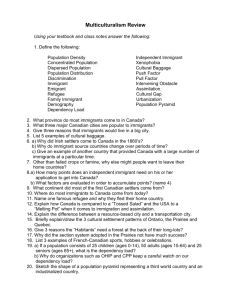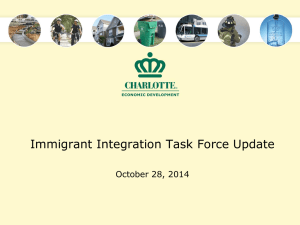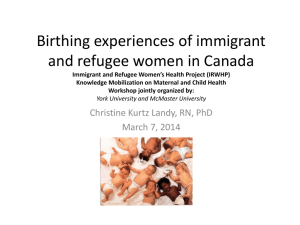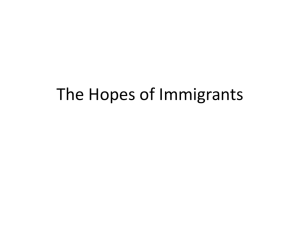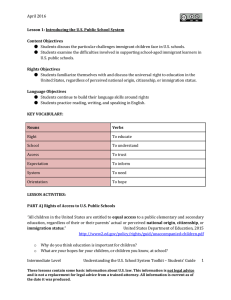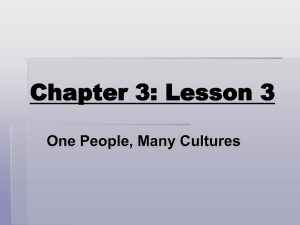Document 13728270
advertisement
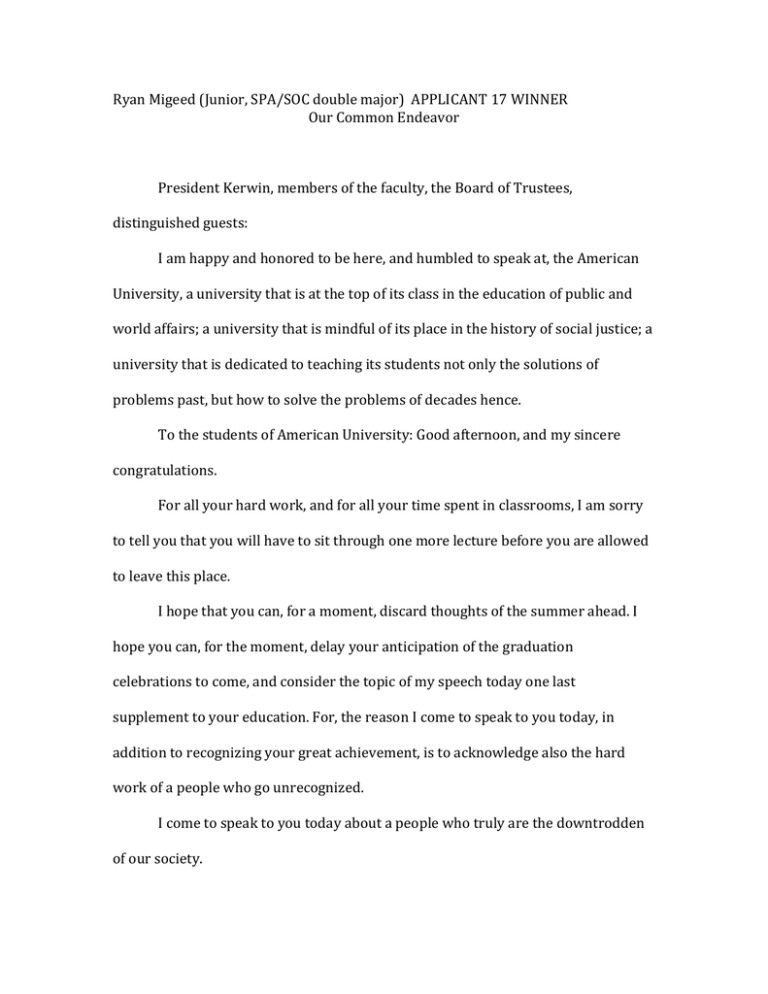
Ryan Migeed (Junior, SPA/SOC double major) APPLICANT 17 WINNER Our Common Endeavor President Kerwin, members of the faculty, the Board of Trustees, distinguished guests: I am happy and honored to be here, and humbled to speak at, the American University, a university that is at the top of its class in the education of public and world affairs; a university that is mindful of its place in the history of social justice; a university that is dedicated to teaching its students not only the solutions of problems past, but how to solve the problems of decades hence. To the students of American University: Good afternoon, and my sincere congratulations. For all your hard work, and for all your time spent in classrooms, I am sorry to tell you that you will have to sit through one more lecture before you are allowed to leave this place. I hope that you can, for a moment, discard thoughts of the summer ahead. I hope you can, for the moment, delay your anticipation of the graduation celebrations to come, and consider the topic of my speech today one last supplement to your education. For, the reason I come to speak to you today, in addition to recognizing your great achievement, is to acknowledge also the hard work of a people who go unrecognized. I come to speak to you today about a people who truly are the downtrodden of our society. I come to speak to you today about the millions of immigrants who are living in the shadows – who came to our country yearning for hope, but are today living in the shadow of fear. As fellow students of history, you will know that our country has an unfortunate record of shutting our door to immigrants, out of nativist fears, out of distrust for different cultures and different languages. We shut the door to the Chinese immigrant, whose life was threatened by the bloody Taiping Rebellion. We shut the door to the Jewish immigrant, who stood at our doorstep wishing to escape mass murder, even as we held our door closed to him. But I ask you today: Is the Mexican immigrant any less American than the Chinese immigrant, or the Jewish immigrant? Does the Mexican immigrant have any less chance of believing what we as Americans believe, or of celebrating the values we as Americans celebrate? No, he does not. Is the Mexican immigrant any more privileged than the Irish immigrant, who fled a famine? Or the Italian immigrant, who fled a drought? No, he is not. For the Mexican immigrant faces trials of will and spirit that we cannot begin to imagine as citizens of a country as fortunate as ours – a nation that is free, a nation that is wealthy enough to care for those who do not have enough. The Mexican immigrant comes from a place where food is hard to come by, and work even more difficult to find. The Mexican immigrant comes from a place where drug lords roam the streets with their armies of gang members, spreading violence and fear, oppression and despair. And across the Rio Grande, just a few miles north, the Mexican immigrant sees a place where crime does not cause war in the streets, where families can feed their children, where every child can receive an education and hope to live a life that is equal in opportunity to that of his neighbor. This is not life south of the Rio Grande. And so these immigrants journey north, some even from the farthest reaches of South America, in the jungles where drug wars again present a constant danger, to the one place that has always been a safe haven for the many peoples of the world. These immigrants come to the United States, to our shores and our cities and our neighborhoods, looking only for a safe place in which to live and to raise their families. These immigrants are fleeing a danger no less severe, no less threatening, than the famine that ravaged Ireland or the drought that devastated Italy. And what they ask for is nothing more than participation in American life, as citizens of a free country that does not discriminate, that does not segregate. Therefore, I am announcing today that I have directed my State Department to re-­‐write the immigration quota system, which has unfairly placed some immigrants above others. I have instructed my State Department to write a new quota system that reflects the rights of all people, so that every immigrant, no matter what country he comes from, no matter his color or creed, has the same chance to come to the United States and live a life free from fear. This shall be a policy not only of equal treatment, but of equal opportunity. It will be a sign to our friends longing to be free that the door is open, and the worst is over. I am also announcing today my request of Congress: that they write and pass legislation that will quicken the process of applying for citizenship, so that those who have been waiting for years, uncertain of their status here in America, can finally claim citizenship here in America. I hope that your representatives in Congress will join my effort in making immigration a fair and open process to all those wishing to flee the fears of famine and injustice. And as all of you go out into the world to make a living, I hope that you will remember the sorrows and the struggles of these forgotten people, and endeavor to craft a public policy that bears in mind their quiet suffering. I hope that you will seek to contribute to the life of this nation in a way that contributes to the lives of all nations. I hope that you will speak up for the people in the shadows, whoever they may be. Today it is the immigrant of whom I speak, but tomorrow it may be the impoverished or the refugee. It is not for me to tell you who to help, but for you to seek out those in greatest need of your help. Understand that just as you have been given this terrific opportunity to study here, at the American University, a monument to the belief that through education we can better our lives, there are those who travel thousands of miles so that their children can receive the same chance to learn and to succeed. Fortunately, I know that my hope is not misplaced in you. For I know that even as the stars burn so brightly we can see them in the dark of night, the passion within all of you burns so bright as to dispel this darkness. I know that you have understood that an education teaches us not only that we can better our own lives, but the lives of others. And I know that all of you will go on to achieve the remarkable, because you already have, just as I know this country will continue to accomplish the greatest of feats because it is in our history to do so. America has proven again and again that it is not beyond our power to improve the life of man, just as it is possible to destroy it. But over and above, we have chosen the former, and this is the task ahead for all of you. Continue to better the life of man as you are able to, as it is our country’s legacy to do. And should you welcome all those huddled masses, yearning to be free, into this common effort, you will find that it is that much easier to accomplish. And our country will be better for it. Thank you. Congratulations once again, and may God bless your efforts and the efforts of our great nation.
